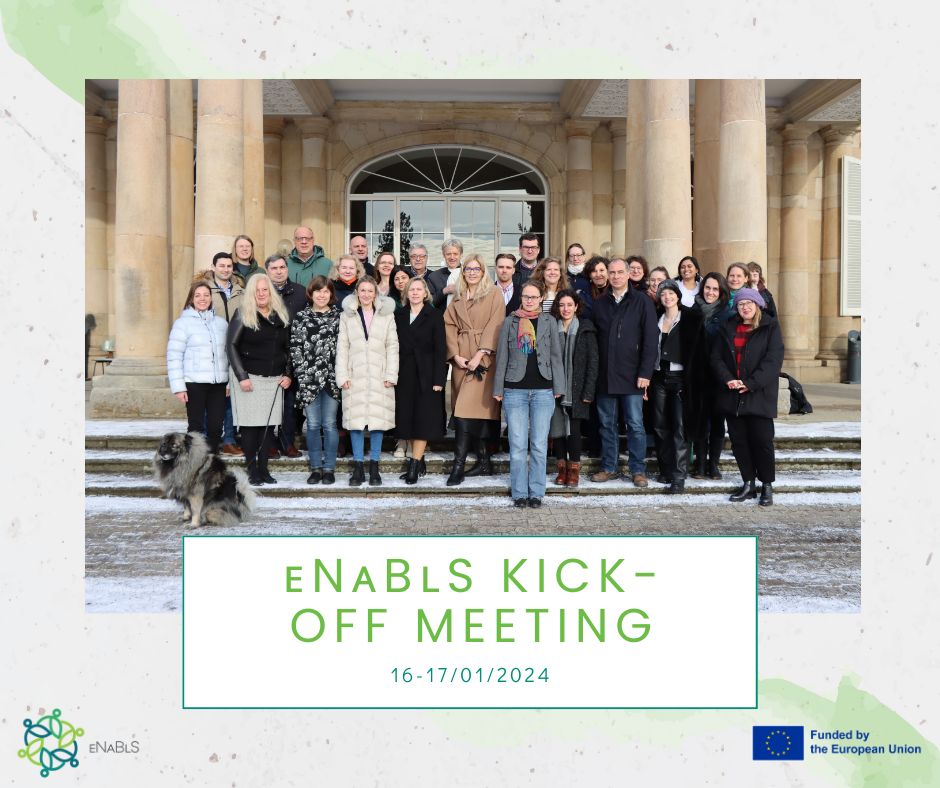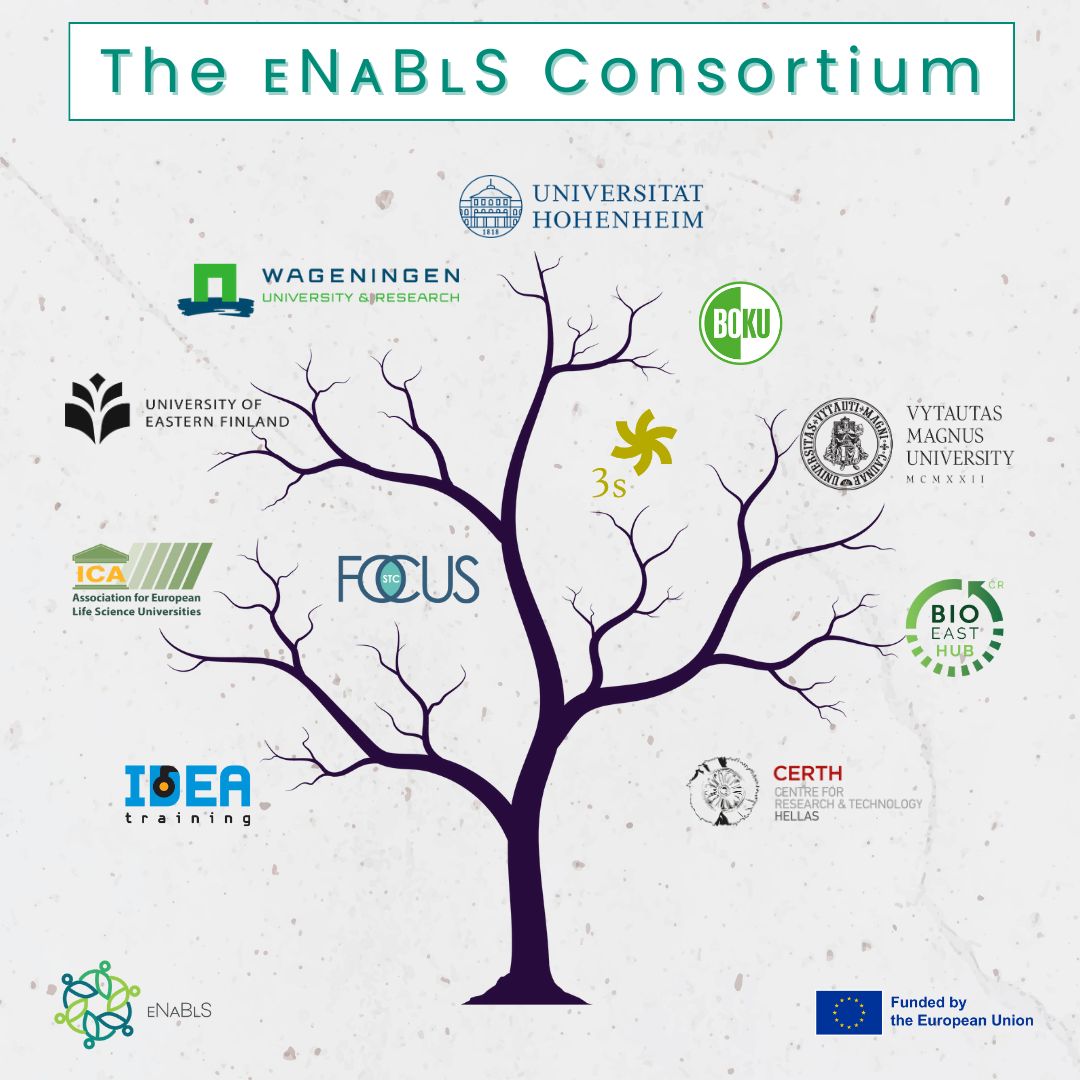In January 2024 ICA together with 10 other partners initiated the start of this 3 year Horizon Europe funded project “Education & Nature-Based Solutions (NBS): bending the curve for biodiversity” (eNaBLS) see full details on the the website

Project objectives
The eNaBLS will set the basis of networking and collaboration to promote, embed, and unfold Nature-based Solutions concepts, and approaches within universities and vocational schools, the professional sphere, and society at large through transdisciplinary dialogue.
7 Living Labs will be created in partner countries (DE, NL, FI, AT, LT, EL, CZ), incorporating all ‘voices’ and leaving no one behind. The goal is to mainstream biodiversity and NBS in higher education and Technical and Vocational Education & Training (TVET) by developing and upscaling new forms of teaching, learning, and capacity building that are more relational, systems-oriented, and applied.
Kick off and team involved
eNaBLS was kicked off on 16-17 January at the Univesity of Hohenheim, Germany.
 The project involves 11 partners led by the University of Hohenheim (Germany), with Wageningen University and Research (The Netherlands), University of Eastern Finland (Finland), University of Natural Resources and Life Sciences (Austria), 3s Research & Consulting (3s) (Austria), Vytautas Magnus University (Lithuania), BioEast Hub CR (Czech Republic), Centre for Research and Technology Hellas (Greece), FOCUS Strategic Thinking Consultants (Greece), Association for European Life Science Universities (ICA).
The project involves 11 partners led by the University of Hohenheim (Germany), with Wageningen University and Research (The Netherlands), University of Eastern Finland (Finland), University of Natural Resources and Life Sciences (Austria), 3s Research & Consulting (3s) (Austria), Vytautas Magnus University (Lithuania), BioEast Hub CR (Czech Republic), Centre for Research and Technology Hellas (Greece), FOCUS Strategic Thinking Consultants (Greece), Association for European Life Science Universities (ICA).
Rasa Pakeltiene, ICA Secretary General, coordinates the project deliverables designated for ICA with the ICA team of experts from SLU Swedish Biodiversity Centre (Sweden), Vytautas Magnus University (Lithuania), Czech University of Life Sciences Prague (Czech Republic), Avans University of Applied Sciences (The Netherlands). Others are expected to join the ICA team in the future.
Benefit for ICA members
It is a great opportunity for ICA members to merge their forces and share expertise not only in delivering project deliverables but also in sharing knowledge and understanding, building capabilities, and learning from each other for the successful adoption of NBS in higher education curricular and university campuses, also to develop a broader network by joining EU NBS Task Force and looking for liaison with similar European Projects and initiatives.
More information about the project: https://cordis.europa.eu/project/id/101135035 and eNaBLS Project Website
Follow for more updates on eNaBLS social media channels: LinkedIn, X, Facebook.
Footnote
What is the difference between conservation and nature-based solutions?
Conservation is the protection and preservation of the planet’s biological diversity and natural resources so that they exist into the future. It includes protecting plant and animal species, habitats, ecosystems, and important ecological services against threats. Conservation can involve setting aside parks and preserves, ensuring that species have the habitat they need to survive, or implementing laws to protect endangered plants and animals.
Nature-based solutions, on the other hand, encompass a wide range of approaches—from the restoration of habitats to water resource management, disaster risk reduction, and green infrastructure—to address societal problems. Nature-based solutions are based on the notion that when ecosystems are healthy and well-managed, they provide essential benefits and services to people, such as reducing greenhouse gas emissions, securing safe water resources, making air safer to breathe, or providing increased food security.
ex WWF
